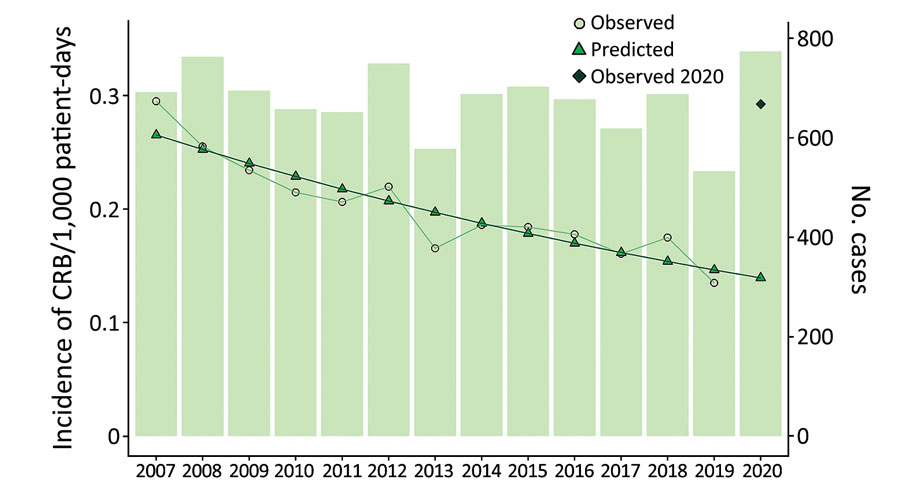Volume 28, Number 11—November 2022
Research
Effects of the COVID-19 Pandemic on Incidence and Epidemiology of Catheter-Related Bacteremia, Spain
Figure 1

Figure 1. Observed and predicted incidence rates of CRB during 2007–2020 in study of effects of the COVID-19 pandemic on incidence and epidemiology of CRB, Spain. We calculated the CRB incidence rate by dividing the total number of episodes of catheter-related bloodstream infections by the total number of hospital stays (patient-days) for each year from 2007 to 2020. We predicted incidence rates by using the negative binomial regression model and compared the predicted rates with observed rates for each year. CRB, catheter-related bacteremia.
Page created: September 15, 2022
Page updated: October 21, 2022
Page reviewed: October 21, 2022
The conclusions, findings, and opinions expressed by authors contributing to this journal do not necessarily reflect the official position of the U.S. Department of Health and Human Services, the Public Health Service, the Centers for Disease Control and Prevention, or the authors' affiliated institutions. Use of trade names is for identification only and does not imply endorsement by any of the groups named above.